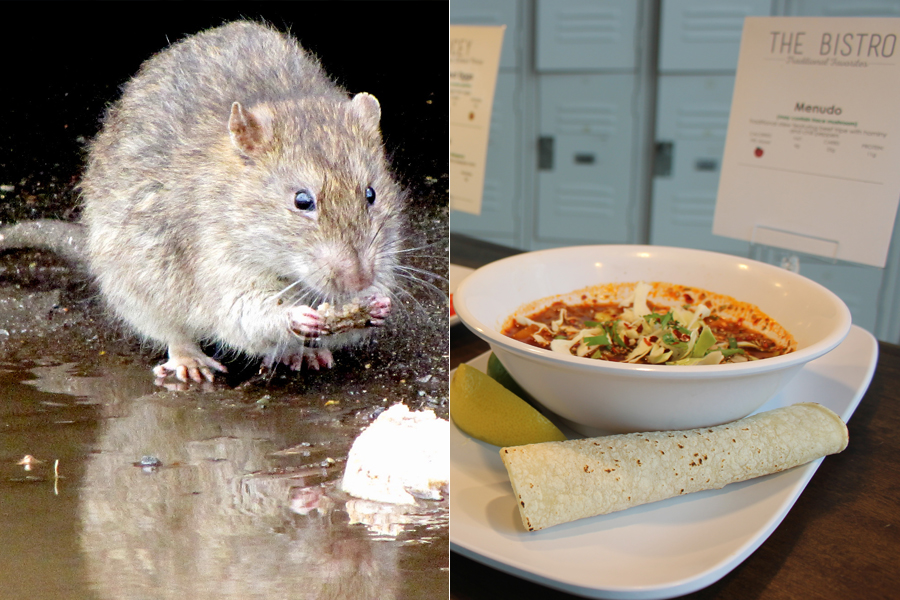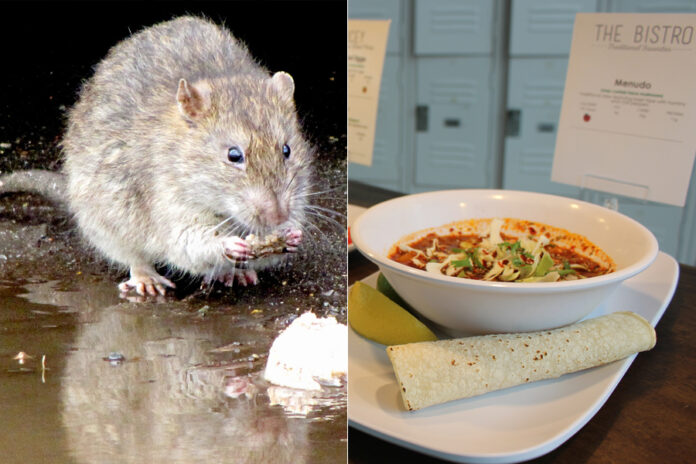
 After a catastrophic two inches of rain — more than the Davis area has seen in months which have felt like years — the H. West Laboratory for Experimental Procedures suffered a power shortage, leading to the escape of hundreds of lab rats. The rats were presumed to be dead or irrecoverable, but were later found when young sleuth Johnny Newman noticed that the Tercero Dining Commons food tasted better than usual.
After a catastrophic two inches of rain — more than the Davis area has seen in months which have felt like years — the H. West Laboratory for Experimental Procedures suffered a power shortage, leading to the escape of hundreds of lab rats. The rats were presumed to be dead or irrecoverable, but were later found when young sleuth Johnny Newman noticed that the Tercero Dining Commons food tasted better than usual.
“It really wasn’t that impressive of a discovery,” Newman said last Thursday. “I had just taken a bite not drowned in sauce and found that it was actually… flavorful. At first I was a bit shocked, really, that the food was appealing, that I wanted more. But that all went out the window when I pulled a six-inch rat tail out of my wok.”
The DC initially planned to sue the H. West Laboratory for their negligence in handling the rats, but have since changed their minds after receiving slightly positive Yelp reviews from students and their visiting parents. The H. West Laboratory, after weeks of intense mediation, has settled for a plea deal in which they supply the DC with rat meat at a discounted price.
“Occasionally a rat or two fell into a pot on accident, but I never thought it’d become our main selling point,” said Herald, a chef at the DC. “Students who’d normally use all their swipes at Trudy’s are now flocking here in hopes of getting vermin on their plate.”
“My parents made fun of me for gaining the freshman fifteen, but I’m just addicted to rat,” an anonymous student said. “I can’t help it.”
The DC’s’ main concern now is that the rats will spread hantavirus or the plague throughout Tercero.
“SHIP doesn’t cover plague,” a health services member said. “So if you don’t have an outside insurance company backing you up, you’re essentially screwed.”
This story will be updated as it develops.
Written by: Drew Hanson — andhanson@ucdavis.edu
(This article is humor and/or satire, and its content is purely fictional. The story and the names of “sources” are fictionalized.)









